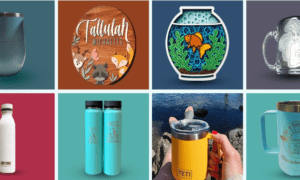Technology has evolved leaps and bounds in this millennium as we successfully crossed the emergence of dotcom, social media, and smartphones. Developments in the recent past suggest that yet another tech evolution is cooking under covers – One that harnesses blockchains. Yes, we are talking about non-fungible tokens (or NFTs) that strive to redefine ownership and authenticity in the digitized world. This article’s focus, though, will be in a different direction – NFTs for brands. We will be speaking about how brands can utilize ideas like NFT marketplace development and NFT loyalty platform development to represent themselves as relevant and intriguing to the current digital-savvy population.
NFTs for Brands: The Need
The below quote from the American writer Seth Godin sheds light on how brands evolve.
“A brand is the set of expectations, memories, stories and relationships that, taken together, account for a consumer’s decision to choose one product or service over another.”
In the current world, many brands that had established themselves for many years have gone amiss while new ones emerged from scratch. What do you think the reason is? Keeping up with the latest innovations is a key facet that allows brands to stay on top of their trade anytime.
With NFTs, brands can reinforce their presence in the tech-savvy world with an increasing presence of the Gen-Z population that emphasizes privacy and community participation. These digital tokens enable brands to get closer to their esteemed customers by offering never-seen-before perks. All these come with a high level of security ensured by decentralized ledger technology that captivates the attention of people.
Explained: NFT Marketplace Development for Brands
NFT marketplace development for brands could essentially be an easier endeavor to accomplish than for projects beginning from the ground up. This is because most established brands tend to be present in the e-commerce space (dependent on their functional niche), and getting into Web3 is only a matter of software integrations and informative promotions.
Multiple brands have rolled out NFT marketplaces over the years, selling digital products. Prominent ones include Adidas, Nike, Gucci, Lacoste, and Lamborghini. NFTs offered by these brands and others have different utilities that range from virtual apparel and token-gated access to exclusive content to real-world products and goodwill.
Typically, these platforms follow the working flow similar to an online store that can be described simply as:
- User registration
- Link crypto wallet
- Purchase NFTs
- Use NFTs (in-app or on an external platform)
- Sell NFTs secondarily
Brands building NFT marketplaces generally tend to make them a part of their broader Web3 ecosystem that comprises other elements like games, virtual worlds, and token-gated communities.
Are Brands Using NFTs Only as a Marketing Gimmick?
The titular question has come into existence ever since the first brands adopted NFTs. While the notion may be partially true, established brands do not abandon a program or application they had put hard efforts into. The reason? Pretty much every activity they do has their reputation at stake, and any mishandling can lead to unsavory outcomes.
Yet, from a marketing perspective, brands tend to utilize NFTs as a weapon to attract new-age consumers who are more accustomed to such innovative technologies. Also, the future for NFTs is only going to be brighter, and no brand would want to fall behind in the consumer market by ignoring such innovations completely.
How Do NFTs Help with Branding?
- Utilizing NFTs helps brands revamp their image in the minds of consumers in the digital era as we move from centralized Web2 to decentralized Web3 technology.
- NFTs can help a brand to have its loyalty program to be more transparent and seamless, aided by blockchains.
- Brands using blockchain technology can use NFTs as the first step toward wide-scale Web3 adoption by establishing the base for other applications such as games or metaverses.
- Consumers have viewed brands adopting new technologies as industry leaders for a long time, and NFT adoption could be a pivotal factor for various ventures to elevate their reputation.
Is It Too Soon for Brands to Adopt NFTs?
This is a question that pops up now and then among branding experts. While Web3 technology is nascent and still evolving, NFT adoption by global brands isn’t as experimental as it was during the dot-com bubble. Although many brands have not unveiled their plans to adopt NFTs, plans are being made in board rooms, and it is only a matter of time until we get some great news.
One thing every brand venturing into NFTs should remember is they should keep the program running actively, irrespective of price swings observed in the NFT market. Those are due to activities by NFT Whales who hold multiple highly-priced NFT assets, and when they perform transactions, the market catches up with their actions. Brands can change such perceptions by establishing themselves in the digital space.
NFT Loyalty Platform Development from a Brand’s Eyes
Apart from the NFT marketplace, a business model that brands consider working on is NFT loyalty platform development. These applications typically enable brands to organize their loyalty system seamlessly using blockchain technology. NFTs here will serve as memberships with points earned through in-app tasks and purchases taking the form of cryptocurrencies.
Starbucks, Lufthansa, Dolce and Gabbana (D&G), Scotch & Soda, Flipkart, and Budweiser have been eminent players in providing loyalty programs powered by NFTs. These programs offer users access to exclusive content, discount vouchers, redeemable points, and real-world benefits. Such platforms can be helpful for brands that serve everyday operations like restaurants, transportation, convenience stores, and e-commerce.
“Of all the things that your company owns, brands are far and away the most important and the toughest.
Founders die. Factories burn down. Machinery wears out. Inventories get depleted. Technology becomes obsolete.
Brand loyalty is the only sound foundation on which business leaders can build enduring, profitable growth.”
These were the words of Jim Mullen, the CEO of Reach PLC, on brand loyalty. NFT loyalty platforms can be the perfect stepping stone for brands aspiring to stay relevant to the current generation.
Top Industries Where Brands Adopt NFTs
- Apparel and fashion
- Travel and hospitality
- Transport and automobiles
- Luxury accessories
- Smart technology and devices
- Sports and gaming
- Art and entertainment
- E-commerce and retail
- Food and beverage
This is only a small list of industries that utilize NFTs, and there are a lot more involved with them in different ways. Brands mainly focus on endeavors such as NFT marketplace development and NFT loyalty platform development as these applications can appeal better to the everyday consumer than a complex platform like an NFT game. Also, these platforms help better in driving the transition to Web3 by letting consumers experience the exclusiveness NFTs offer.
Conclusion
Brands have always been propagators of next-gen innovations, and they remain so in the 2020s by taking up NFT-based initiatives. The only difference this time would be that more people are conscious about NFTs than before, and most of them look to enter the space in some way. Globally acclaimed brands utilizing NFT marketplace development and NFT loyalty platform development can aid such enthusiastic consumers in trying out new technology. They should also ensure that users have a great experience irrespective of the wider market condition, as their value is at stake most times. All concerns apart, more local and global brands are preparing to entice their customers through aesthetic and useful NFTs. We can only hope for the best to happen!



































